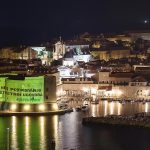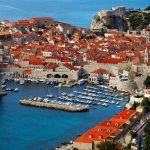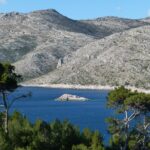An important anniversary is remembered in Dubrovnik on December 6, 2016.
What do you think of when you think about the 90’s? Maybe you think of the then mobile phone giant Nokia and the phones that could break concrete if dropped, or Haddaway’s eternal question about what love is. For many it was a happy time, a time of good music, technological advancement and anticipation of the turn of a brand new century. For others, it was a time of fear, death, oppression and destruction, and for those of us who come from Europe, it was shocking to see such a thing occurring on our doorstep, again. The aggressors pressed on with their imperialistic style regime through unfathomable attempts at mass murder, butchering innocent civilians in Srebrenica, in Vukovar, in Skabrnja. Children murdered, women raped, men slaughtered and buried in pits, given no more dignity than diseased livestock. Europe had not seen such bloodshed and brutality since Adolf Hitler and his flock of black-shirts reigned. For most, the reasons were shrouded in mystery, for many, they still are.
On the 6th December 1991, Dubrovnik was viciously attacked by the JNA (Yugoslav Peoples Army), it was the culmination of a siege which sought to raise the globally adored UNESCO World Heritage Site to the ground. The likes of which we recently saw in Palmyra at the hands of ISIS. The horrific bombardment of Dubrovnik resulted in international condemnation of the JNA and rightly became a public relations disaster for Serbia and Montenegro, contributing to and furthering their diplomatic and economic isolation and winning them powerful enemies across Europe and the world.
The cruel and unjustified siege and naval blockade by the JNA and the Yugoslav Navy caused the deaths of between 82 and 88 Croatian civilians and 194 Croatian military personnel. By the end of 1992, when the entire region was recaptured by the HV, 417 HV troops were dead. Approximately 19,000 refugees were displaced. 11,425 buildings suffered varying degrees of damage and numerous homes, businesses, and public buildings were torched and property was looted by the JNA and their Montenegrin counterparts. In 2000, Montenegrin President Milo Djukanovic apologised for his country’s part in the devastating attack, prompting anger from his political rivals and feelings of betrayal from the still very much isolated and globally condemned nation of Serbia.
Today, on the 6th of December 2016, Dubrovnik is a tourism giant, but still very much silent in its peace, with only mere calls of seagulls and anchors of ships cutting through that hard-earned silence. It has won many titles since that awful day, and gained many nicknames, from the fictional Kings Landing and Naboo, to the non-fictional Pearl of the Adriatic. A far cry from is past, the costly mask the city so perfectly wears would never reveal its wounds, its pain or its suffering to the untrained and naive eye.
Croatia’s president, Kolinda Grabar-Kitarovic arrived unhindered on Mount Srdj, the site of the Napoleonic Fort Imperial, adorned with the Croatian flag. Where she partook, alongside various officials in the traditional laying of memorial wreaths at the large stone cross located on the ridge of the rugged, rocky mountain.
Refreshments were available at Srdj’s mountaintop restaurant (Panorama), sponsored by the owner of the restaurant, who was himself a soldier during the Homeland War, and organised by the Association of Defenders of Dubrovnik.
There were also several memorial services held in nearby Sustjepan, which was the area most exposed to JNA aggression during the war.
Tonight, a Braniteljski concert will be held in front of the Church of Saint Blaise at 20:00, which features various musicians, including a Braniteljski Band, and will last several hours. All musicians involved have gladly volunteered to perform at the concert which is expected to gain the attention of many.
The Association of Defenders of Dubrovnik would like to state that this evenings concert is a celebration of their deserved victory, of freedom and justice.
”Freedom must not be sold for all the gold in the world” – 1102, The Dubrovnik Republic.









